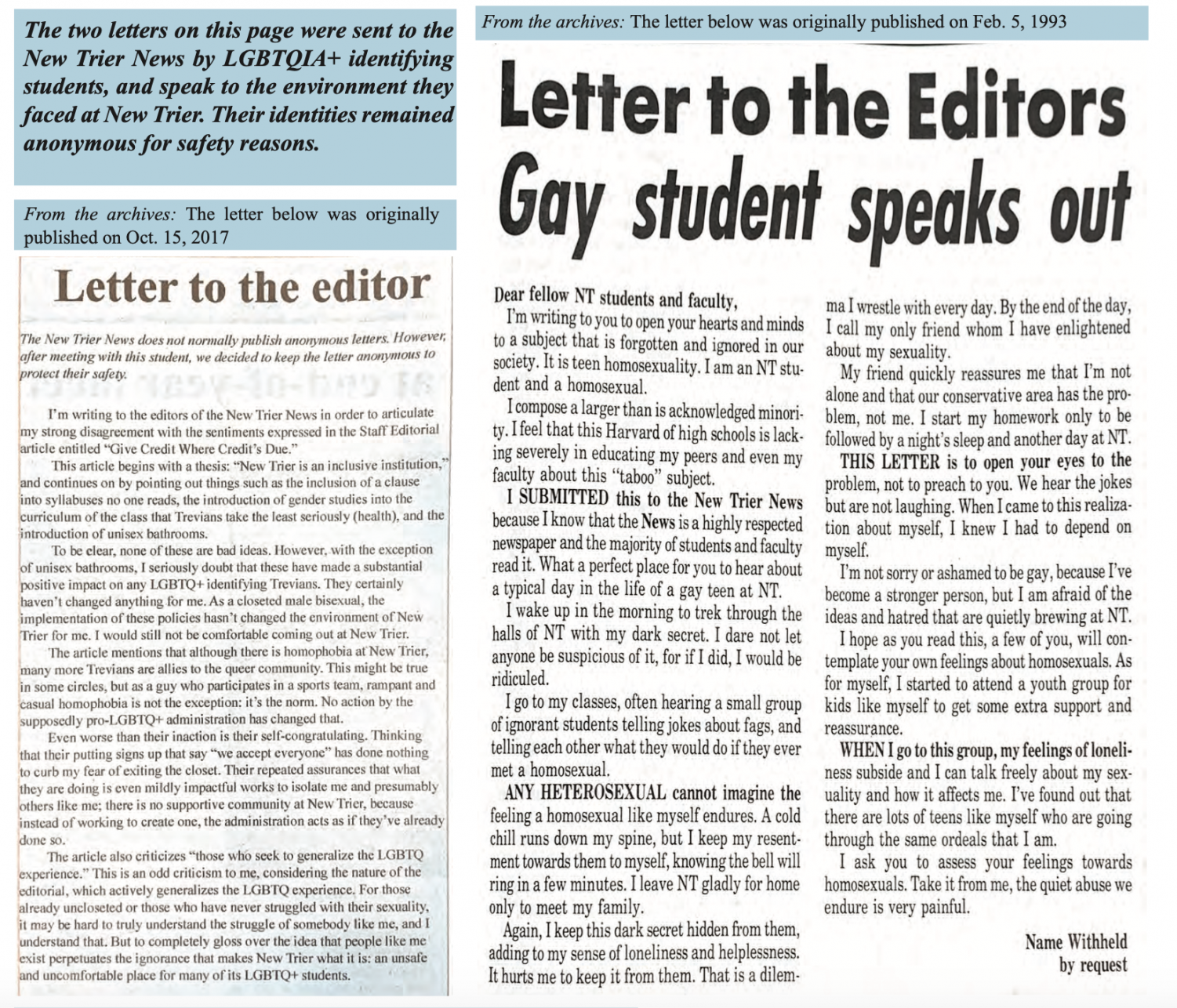Remember all those who are not laughing: The LGBTQIA+ community at NT
“I’m not ashamed to be gay, because it made me a stronger person, but I am afraid of the ideas and hatred that are quietly brewing at New Trier.”
These are the words of an anonymous gay student in a letter to the editor dated February 5, 1993.
In the age of legalized same- sex marriage and a seemingly progressive society, our world should exist without this undercurrent of homophobia–but have we really changed since this letter was submitted? Is the burden of being LGBTQIA+ really lighter?
While writing this, I couldn’t help but think of a phenomenon I experienced while on JV Softball.
Oftentimes when my teammates were asked if they played a sport, they would say they didn’t play anything or had a canned response at the ready if they were honest.
Our team ranged from ages 14-18, each player with intensely different backgrounds and views on the world, yet somehow we were close. While there was a definite sense of love and respect on the team, I couldn’t help but pick up on social cue that playing softball was something to be subtle about.
While carpooling one night, we started talking about why we never wore our gear to school. It was embarrassing we all agreed, but why?
I began to realize the reason behind our omission of playing. It wasn’t that our team had a losing streak or that it was no cut.
It was something deeper, more ingrained. We were living under the weight of a stereotype of a “lesbian” sport and we all knew it. We always seemed to want to beat outsiders to the punchline to protect ourselves, and I was tired of it. I get it, people make jokes based on stereotypes to try to be funny, but I’ve seen how these jokes turn serious when the stereotype applies to someone.
It’s the people in the anonymous letters that internalize locker room talk, that live in constant fear of outing themselves if they say anything.
Administration has made a definite effort to create a more inclusive environment for LGBTQIA+ people, with gender- neutral bathrooms and clubs like GSA.
While you can’t standardize acceptance, I do feel that our generation is going in the right direction. There’s a promising contrast on these pages thanks to the difference of just a few years, “loneliness and isolation” vs. Jacob Imber who was welcomed as the first openly gay SA president.
I’m not claiming to have all the answers, there may be some layers to homophobia that we can never solve. All I’m asking is that next time you hear a “gay” joke or stereotype, remember the people who aren’t laughing.








































